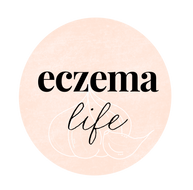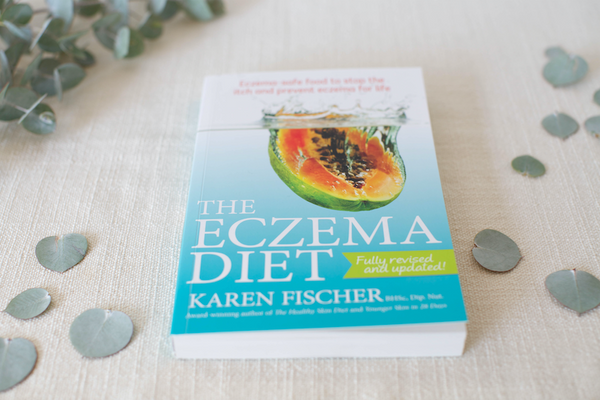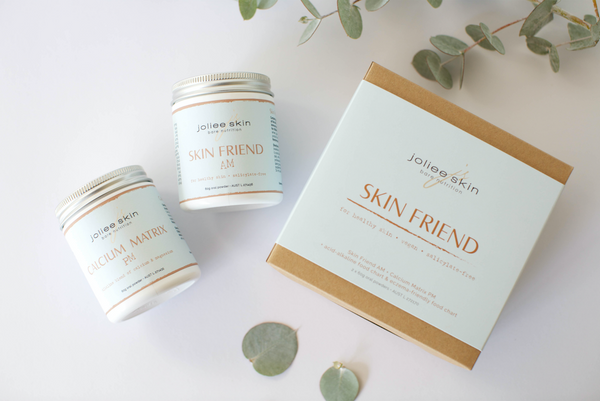Eczema Diet FAQs: babies, pregnancy and breastfeeding

Q: “My child is 10 months old and has eczema. Is The Eczema Diet suitable for babies under 1 year?”
The Eczema Diet has programs to suit all ages. The author, nutritionist Karen Fischer, has helped and worked with hundreds of eczema patients and many of them are babies and young children.
The book includes an “Infants with eczema” chapter which discusses the best ‘first foods’ (solids) for babies with eczema, and it details what foods to add to the diet each month until your child is 1 year old.
It also has important information about the problems with teething gel, foods to avoid and how to make your own eczema-friendly teething rusks and more.
Also, 10 months of age or earlier is the perfect time to begin The Eczema Diet as babies eat a limited number of foods so you can start them on the right foods straight away.
Q: "My child is three years old and has eczema. Is The Eczema Diet suitable for children?"
Yes, for children over the age of one The Eczema Diet offers menus, party food ideas (lolly bag suggestions) and lunch box ideas. Each chapter helps you choose the right foods to suit your child's growing needs while helping their eczema, and there are 80 recipes to choose from.
Nutritional support is also important when going on a dairy-free diet so we recommend Skin Friend as it contains calcium and a range of essential nutrients suitable for children.
Q: “I’m breastfeeding my baby who is suffering with eczema. I'm following the "Infants with eczema" advice in the book, so should I also alter my diet and follow The Eczema Diet?
What you eat does affect and influence the quality of your breast milk while breastfeeding. So it is helpful to do the diet too, ideally with supervision from a nutritionist who understands The Eczema Diet.
We suggest if you are pregnant or breastfeeding to read the Eczema Diet book. There is a section within the book for people who are pregnant or breastfeeding.
Q: "I have severe eczema and I'm breastfeeding. Is it okay to take the Skin Friend supplements while I'm breastfeeding?"
During breastfeeding, your body has increased nutritional requirements in order to nourish both your baby and yourself. So taking extra vitamins and minerals can be an important part of your routine. Calcium, zinc, magnesium, vitamin C and a range of B vitamins are especially important during this time.
Nutritionist Karen Fischer often prescribes Skin Friend (Skin Friend AM and Calcium Matrix PM) to her patients who are breastfeeding. Either the baby has eczema (and the supplements are taken by the mother to enhance her milk quality) or the mother has severe eczema and it is affecting her quality of life and she is prescribed the Skin Friend supplements to boost her nutrition and calm her skin.
It is wise to check prescription medications that might prevent you from taking supplements. If you are taking medications or if you are pregnant or breast feeding we suggest seeing your doctor for professional advice. With your doctor's okay, it would be fine to take the Skin Friend supplements.
Q: "I have eczema and I'm pregnant. Is it okay to take the Skin Friend supplements?"
During pregnancy, your body has increased nutritional requirements in order to nourish both your baby and yourself. We do suggest you take a pregnancy multivitamin as iron, folic acid, zinc, magnesium, vitamin C and a range of B vitamins are important during this time. Calcium is incredibly important for bone and skin health, and it should be taken separately as it blocks the absorption of iron and zinc (if taken at the same time).
Nutritionist Karen Fischer occasionally prescribes Skin Friend (Skin Friend AM and Calcium Matrix PM) to those who are pregnant if the mother has severe eczema and it is affecting her quality of life. A modified diet that is suitable for pregnancy (part-program, not the full Eczema Diet) is usually prescribed.
It is wise to check prescription medications that might prevent you from taking supplements. If you are taking medications or if you are pregnant or breast feeding we suggest seeing your doctor for professional advice.


